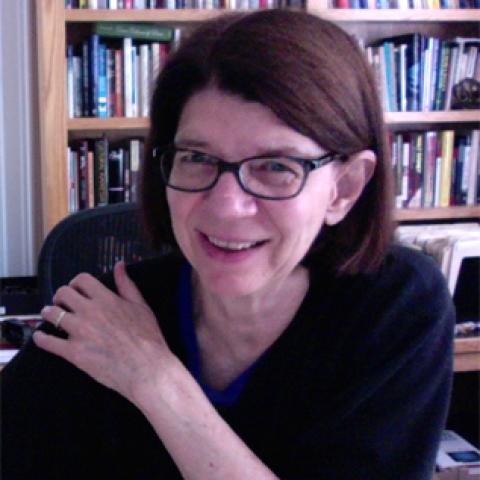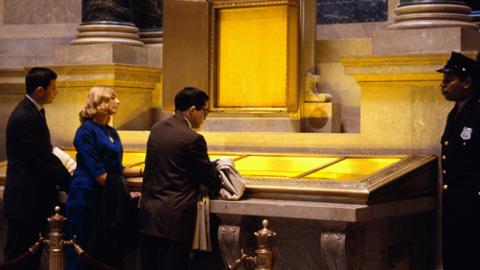According to the Washington Post, Secretary of State Rex Tillerson is ordering a re-write of the department’s mission statement, in which the phrase “a peaceful, prosperous, just, and democratic world” will be replaced with “a safer, more prosperous world.” The _Post_ further reported that the State Department website has scrubbed its humanrights.gov website and shifted the contents to the more anodyne-sounding state.gov/j/drl. The reporter, Josh Rogin, quoted Elliott Abrams: “We used to want a just and democratic world, and now apparently we don’t.”
This re-write might be gratifying to President Trump’s hardcore supporters, who revel in his posture of contempt toward the foreign-policy establishment and his in-your-face “America First” attitude toward all foreign leaders not named Vladimir Putin. But it is deeply troubling to the thousands of seasoned and experienced Americans and foreign nationals who represent the United States overseas.
These men and women are not all “heroes.” (Please do not imagine a backdrop of muffled drums and rippling flags.) But, having spent the last decade interviewing a cross-section of these emissaries—diplomats and embassy staff; journalists and technicians in government-supported media like the Voice of America and Radio Free Europe; veterans of counterinsurgency operations in Afghanistan and Iraq; and the indispensable foreign nationals who work with Americans in all these settings—I can attest that they deserve a lot more respect than they are getting from the nation’s current Commander-in-Chief.
Without using the vexed term “exceptionalism,” the people I talked to believe strongly that America has a unique role to play in the world, and that, despite tragic mistakes, that role is more positive than not. Some retired and others still serving, their political views range from deep blue to deep red, but nearly all insist that their job is to represent the United States, not further the agenda of a particular faction or party. Only one or two quit the job because they could no longer suppress their disapproval of certain policies.
But now these people feel the ground shifting under their feet. As one senior State Department official put it, “There’s a general feeling of standing on the shore watching the tide silently draw farther and farther back, as if a great wave were coming, but being unable to take any preventive measures.” From the Americans among them I hear worries about the President’s apparent disdain for the nation’s ideals. From the foreign nationals I hear fears of abandonment. From all, I hear the stark question: _How can we keep doing our jobs when the country we respect and admire resembles a slo-mo train wreck?_
The best answer I’ve come up with is that this is a teachable moment, meaning that, despite the train wreck or perhaps because of it, 2017 is an auspicious time to reaffirm the fundamental principles of liberal democracy to a turbulent and hostile world. This is not as crazy as it sounds. Unlike younger, more fragile democracies, the United States has a deeply ingrained tradition of unalienable rights, separation of powers, judicial independence, and rule of law—all set forth in a Constitution expressly designed to prevent a would-be “strong man” from seizing power.
As others around the world witness independent judges, journalists, and legislators raising obstacles to Trump’s brandishing of executive power (and perhaps recall the same dynamic occurring under President Obama), America’s overseas emissaries have a rare opportunity to explain the origin and purpose of those obstacles. If they do so competently, they will also, willy-nilly, be promoting liberal democracy as the best system—not because it brings utopia but because it prevents dystopia.
Yet here is a dispiriting note. A few months ago, I shared this idea of a teachable moment with a group of State Department officials well seasoned by difficult postings overseas. They agreed with the idea, but one of them remarked, “Most of our younger people are not competent to do that.” When asked to clarify, he explained that the majority of newly minted diplomats “don’t know this stuff. They would have to take a civics course.” In other words, this would be a teachable moment if we had the teachers. But we don’t.
It is too easy to blame Trump for weakening America’s commitment to a more democratic world; disillusionment with that project set in well before he appeared on the scene. One obvious reason is the claim, made belatedly by President George W. Bush, that the 2003 invasion of Iraq would bring democracy to the Arab Middle East. Another is the economic and political malfeasance that led up to the financial crisis of 2007-09.
But a third, less obvious reason is a gradual shift of emphasis, in U.S. democracy promotion, away from fundamental principles and toward activism aimed at fighting prejudice against women, immigrants, and various racial, ethnic, religious, and sexual minorities.
Such activism is understandable in the context of established democracies. But in the context of authoritarian regimes, to say nothing of failing, conflict-ridden states, it is likely to be counter-productive. Put bluntly, there is little sense in speaking, petitioning, and demonstrating against repellant social prejudices in political settings where people do not have the right to speak, petition, or demonstrate against anything. Not only that, but in societies where a majority of the population is religiously or culturally conservative, there also is the danger of powerful rulers using those same social prejudices to discredit liberal democracy.
This counter-productive aspect is clear to any American who has lived overseas long enough to overcome certain blind spots. But it is much less clear to rookie diplomats, journalists, and soldiers (not to mention NGO staffers) who may be adept at social media but who have little knowledge or experience of authoritarian rule, violent civil conflict, or the anarchy that follows the collapse of a state. Instead, many of these younger Americans have been habituated to believe that greatest enemies of freedom and democracy are domestic—namely, the racism, sexism, homophobia, “classism,” “ageism,” and other prejudices that continue to divide our society.
But maybe this is a teachable moment for the rookies, too. As they see fellow citizens from both parties using the system the way it is supposed to be used—to curb the excesses of an irresponsible and foolish executive—they may gain a new appreciation of the traditions and institutions that protect their own rights and liberties (or at least, quit taking those blessings for granted).
Of course, this would be only the first step. Appreciating the virtues of liberal democracy is a necessary part of representing the United States, but it is hardly a sufficient one. Ask the countless foreigners who have been subjected to patronizing lectures on “freedom” by well meaning but obtuse Americans. Rookies must also absorb a considerable body of lore about how best to communicate those virtues to foreigners who have reason to be dubious, distrustful, or hostile.
By lore I do not mean war stories or sentimental reminiscences. Rather I mean granular details, compelling anecdotes, and pungent observations not typically found in think tank reports or academic programs in public diplomacy. But here’s the good news: Almost all of the people I talked to proved eager to share their lore with anyone who shows a genuine interest. To absorb this lore is to acquire a species of wisdom that is in danger of being lost. And right now, we need all the wisdom we can find.

















